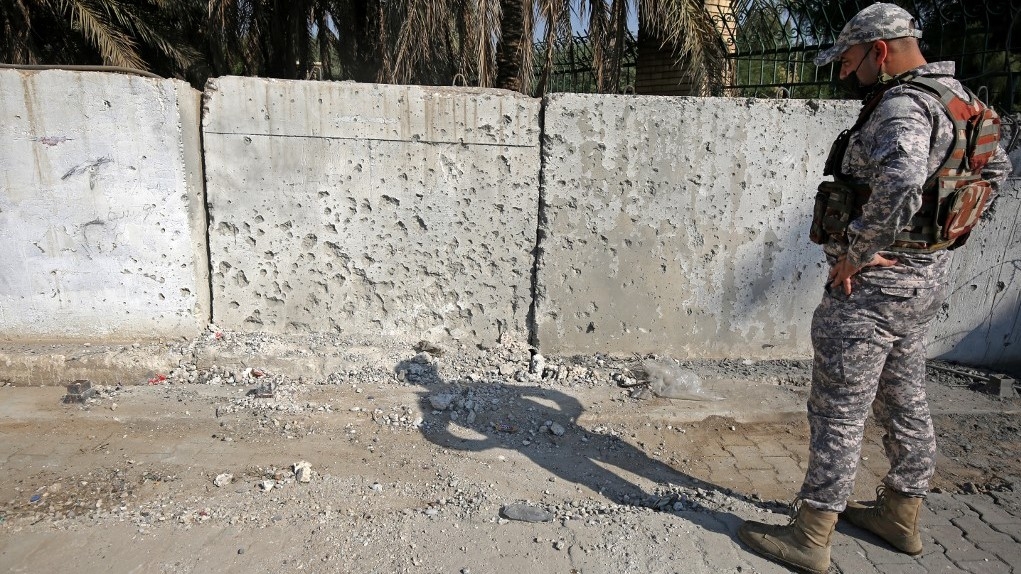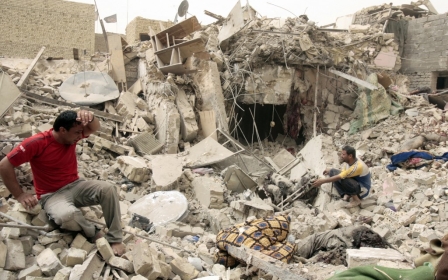Post 9/11 wars have led to more than 4.5 million deaths, says report

Since 9/11 at least 4.5 million people have died as a consequence of wars in the Middle East, North Africa, and Asia, a new report says.
A research report from the Costs of War project at Brown University’s Watson Institute estimates that of the 4.5 million fatalities, there were at least 3.6 to 3.7 million “indirect” deaths caused by a variety of factors.
The categories in the report are economic collapse and food insecurity; public services and health infrastructure destruction; environmental contamination; reverberating trauma and violence, and other impacts.
The US invaded Afghanistan and drove the Taliban from power in retaliation for the 11 September 2001 attacks, which had been planned while al-Qaeda's leader, Osama bin Laden, was living in the country under Taliban protection.
The number of deaths caused by post-9/11 conflicts has been a source of intense controversy, as politics and inexact science have intersected in heated debates of conflicting interests.
New MEE newsletter: Jerusalem Dispatch
Sign up to get the latest insights and analysis on Israel-Palestine, alongside Turkey Unpacked and other MEE newsletters
In 2015, the Nobel Prize-winning Physicians for Social Responsibility estimated that more than one million people had been killed both directly and indirectly in the wars in Iraq, Afghanistan, and Pakistan alone.
According to the Cost of Wars report, which looks at the cost of war across conflicts in Afghanistan, Pakistan, Iraq, Syria, Libya, Somalia, and Yemen, indirect deaths grew in scale over time.
Though the US withdrew its military forces from Afghanistan in 2021, officially ending the war, Afghans are “suffering and dying from war-related causes at higher rates than ever”. The Taliban returned to power in 2021, 20 years after their removal by US forces.
“Indirect deaths are devastating, not least because so many of them could be prevented, were it not for war,” the report states.
It adds that body counts are both complicated and controversial, and it is difficult to estimate indirect deaths, as these deaths do not occur immediately after the battles.
“A death from hunger mostly occurs at some distance from this attention to spectacle and it may happen months or years after war disrupts access to food. Often, people affected by war are displaced and transient, making them hard to track,” the report states.
It is also difficult to disentangle indirect war deaths from death that might have occurred in places where people are already suffering from high rates of poverty, disease, and malnutrition.
The author states that the researchers applied the Geneva Declaration Secretariat's average ratio of four indirect deaths for every one direct death. The report notes that while that ratio may be lower in Iraq, it would be higher in Yemen or Afghanistan and thus the ratio was deemed accurate to arrive at the "reasonable and conservative" estimate of 4.5-4.6 million.
The report also notes that the vast majority of troops killed in the fighting were locals, including over 177,000 Afghans, Pakistanis, Iraqis, and Syrians who died as of 2019. The number of US troops killed in Iraq and Afghanistan was 7,000, with more than 8,000 military contractors killed.
“There are reverberating costs, the human cost of war, that people for the most part in the United States don’t really know enough about or think about,” Stephanie Savell, the report’s author and co-director of the Costs of War project, told the Washington Post.
"In laying out how the post-9/11 wars have led to illness and indirect deaths, the report’s goal is to build greater awareness of the fuller human costs of these wars and support calls for the United States and other governments to alleviate the ongoing losses and suffering of millions in current and former war zones," the report argues.
In March, the US Senate repealed the resolution that permitted the 2003 invasion of Iraq, in a largely symbolic but bipartisan move to reassert Congressional oversight of war power.
The Senate voted 66-30 to repeal the 2002 Authorization for Use of Military Force (AUMF) in Iraq and also the 1991 authorisation that green-lighted the first Gulf War.
The resolution will move to the House for a vote. If it passes, President Joe Biden has suggested he will sign it into law.
Middle East Eye delivers independent and unrivalled coverage and analysis of the Middle East, North Africa and beyond. To learn more about republishing this content and the associated fees, please fill out this form. More about MEE can be found here.





